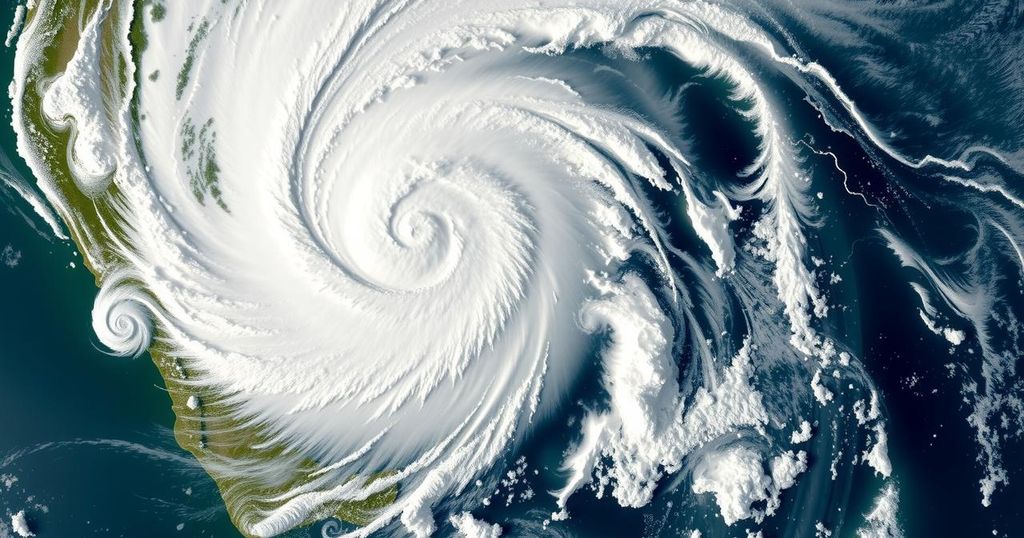Tropical Cyclone Chido Strikes Mozambique: Impacts and Preparations

On December 15, 2024, Tropical Cyclone Chido made landfall in Mozambique, bringing destructive winds and heavy rain. The cyclone is projected to affect southern Malawi and dissipate near Zimbabwe by December 17. Over 1.7 million people in Mozambique and 440,000 in Malawi are at risk. The UN and partners are aiding local authorities in response efforts as assessments of damage begin.
On December 15, 2024, Tropical Cyclone Chido made landfall on Mozambique’s coast near Pemba, registering as a Category 4 storm, with winds reaching 260 km/h and rainfall of 250 mm within a 24-hour period. The cyclone’s severe impact period is projected to last until December 17, as it gradually dissipates in Zimbabwe. The storm’s projected route threatens over 1.7 million residents in Mozambique and 440,000 individuals in Malawi with damaging winds and significant rainfall. Preparations are ongoing, with the United Nations and local partners actively supporting disaster response efforts.
Chido made landfall around 6 a.m. local time and has caused immediate infrastructure concerns, particularly in the Cabo Delgado and Nampula provinces, where preliminary reports indicate possible housing damage and widespread power outages. Continuing assessments are necessary as further impacts are felt in Niassa, Tete, and Zambezia. Residents are advised to stay alert to updates from meteorological services.
As Chido moves towards southern Malawi, forecasts predict an accumulation of 100 mm of rain. Following its impact on Malawi, it is expected to degrade near Zimbabwe on December 17, 2024. Affected regions may also experience increased risk of flash floods and mudslides due to heavy rainfall predicted beyond Chido’s direct influence.
Prior to its landfall in Mozambique, Cyclone Chido had significantly affected the Comoros Islands on December 14, where preliminary reports indicate injuries and infrastructural damage. The weather system continues to pose risks across multiple southern African nations, including parts of Angola and the Democratic Republic of the Congo, as it produces substantial rainfall.
The situation arises from Tropical Cyclone Chido, which intensified in the south-eastern Indian Ocean and made landfall in Mozambique, endangering millions across southern Africa. This cyclone marks a critical point in the region’s rainfall patterns, influencing not only Mozambique and Malawi but extending to a larger area including parts of Angola and the Democratic Republic of the Congo. With damaging winds and prolonged rainfall forecasted, the response and preparedness of both national and international agencies are essential for mitigating the storm’s adverse effects. This highlights the increasing frequency and intensity of cyclones in the region, emphasizing the importance of effective disaster risk management strategies.
In summary, Tropical Cyclone Chido poses significant threats to Mozambique and Malawi, with over two million people at risk of destructive weather conditions and potential flooding. Efforts are underway to support preparedness and response initiatives by local governments and international agencies. The situation necessitates continual monitoring, as communities brace for the impacts of this severe weather system throughout December. Collaborative response strategies will be crucial in addressing both immediate and long-term needs in the aftermath of Chido’s landfall.
Original Source: reliefweb.int







